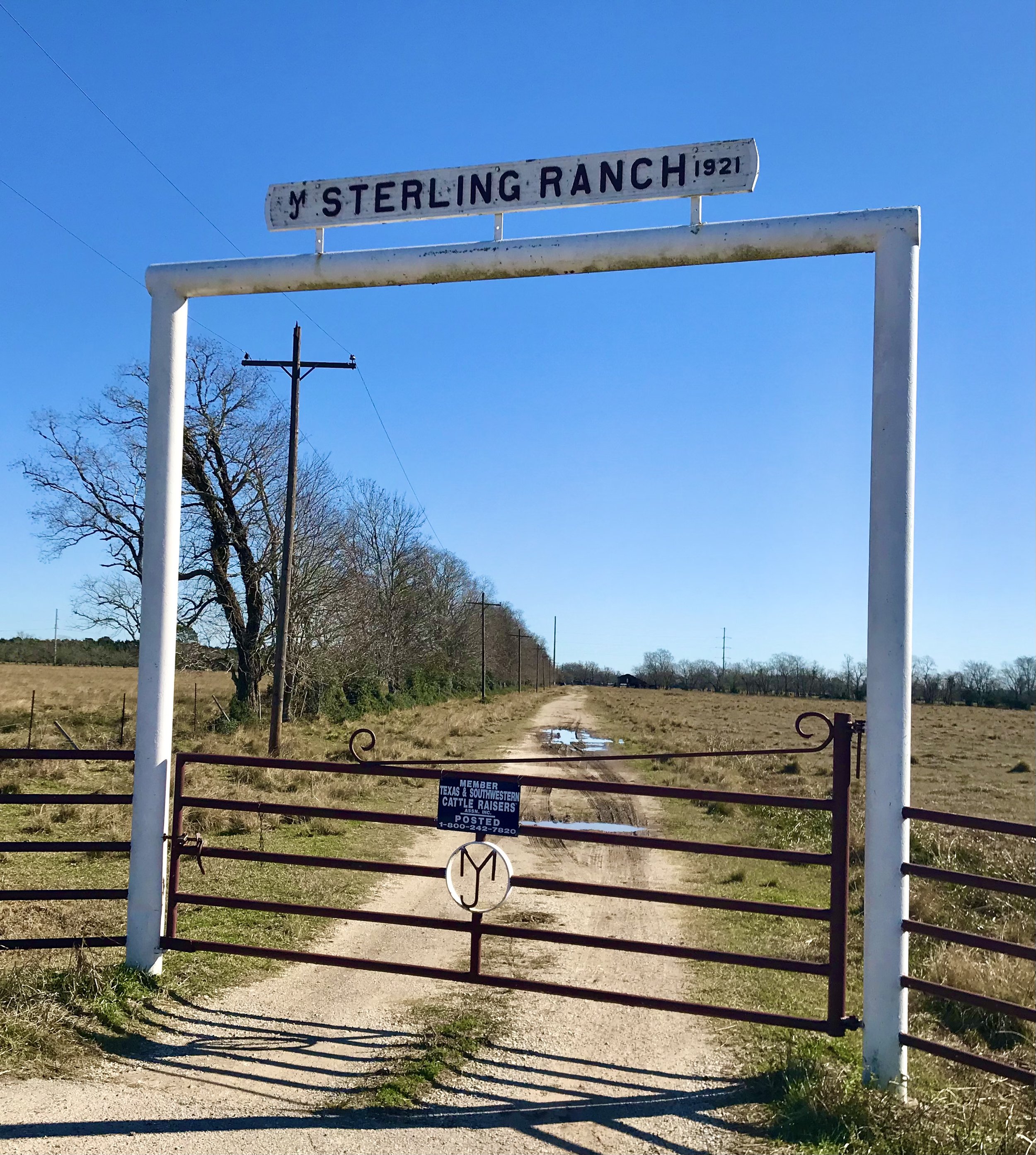A Girl and a Bull: Where It All Began
Some of my favorite childhood memories involve my grandfather driving my brother and me around the ranch in his beat-up Chevy suburban. We’d bounce around the backseat as he drove through ditches and pastures with a heavy foot, the smell of hay, cow dung, and dirt wafting through the open windows. One day, my grandfather came to an abrupt stop and got out to adjust a gate. No sooner did he leave than an enormous bull stuck his head through the window. I screamed for my very life as he stretched his neck in towards me. When my grandfather came running, I heard him laugh and say in his southern Texas drawl, “It’s just Milton. Stop that yellin’—you’re gonna scare ‘im. Get out and brush ‘im.”
My grandfather was of the generation of proud ranchers who ran their own operations, respected the land, and loved their animals. His cattle had names, healthy food, and luxuries like being brushed, good shade, and filtered water. He dealt with like-minded producers all the way down the chain. If he were here today, it would be difficult for him to comprehend that just four corporations control nearly 85% of all beef production, that it’s common for the Centers for Disease Control and Prevention to announce recalls and outbreaks for massive amounts of beef testing positive for E. coli, and that there are too many humane slaughter violations and oversights to count. He’d find it inconceivable that we are living in a time where animal agriculture is doing so much harm. I credit my grandfather’s influence and strong values for lighting my fire when it comes to this issue of significance.
From a pure health perspective, our food choices are literally killing us. Diet-related diseases are the number one cause of mortality in the U.S., with poor eating habits leading to nearly 1,000 deaths per day, and studies have shown that heavy meat consumption is linked to our top killers: heart disease, diabetes, and cancer. The World Health Organization has listed processed meats (e.g., bacon, deli cuts, hot dogs) as carcinogenic—definitively linked to cancer—in the same classification as cigarettes and asbestos. Consumption of red meat also gets a nod for its positive correlation to cancer. Overconsumption of processed and fast foods leads to obesity, an issue that is becoming more and more pronounced with each passing generation. The World FactBook chart on the CIA’s website ranks the United States as 12th out of 192 countries for obesity. We have created a health crisis that is only getting worse, with many predicting that baby boomers might be the first generation of parents to outlive their children.
In order for the corporate meat industry to keep up with demand and remain profitable, it must maintain speedy production at all costs. In addition to the stressors they face during transport (e.g., injuries, days without food, water, or ventilation), animals must face the horrors of the slaughterhouse where there is lack of proper oversight. In fact, a new law permits some of these facilities to self-regulate, without USDA inspectors on-site, while speeding up production lines. This leads to numerous and repeated violations of The Humane Methods of Slaughter Act, an archaic law providing that animals must be rendered unconscious before dismemberment. This law was enacted in 1958 during Eisenhower’s presidency and remains the only federal law addressing humane treatment of animals in slaughter, poultry excluded.
But thanks to diligent journalists, whistleblowers, and filmmakers, the public now has more information about the harsh realities surrounding our food supply. We’re piecing together the connection between meat consumption and our health. We’re learning that the wholesome picture of animal agriculture that was painted by our grandfathers is not today’s reality. We’re becoming aware of this massive industry’s negative impacts on the environment. We’re also seeing the collective result of our personal changes: top meat corporations are now investing in plant-based meats and fast food chains are offering vegan options. Through knowledge and inquiry, we see just how effectively our choices and consumer dollars can influence the world.
I am optimistic and heartened to see these efforts taking hold and gaining momentum. I want to be a good steward of this earth, so that suffering for all beings is reduced and the planet and its inhabitants remain healthy and vibrant for generations to come. This issue concerns us all, and we have a responsibility to keep an objective view and to use our voices, actions, and votes to initiate change when we learn that our collective demands are causing harm. When we educate ourselves and each other, we truly empower ourselves to do better.
* References available upon request.
